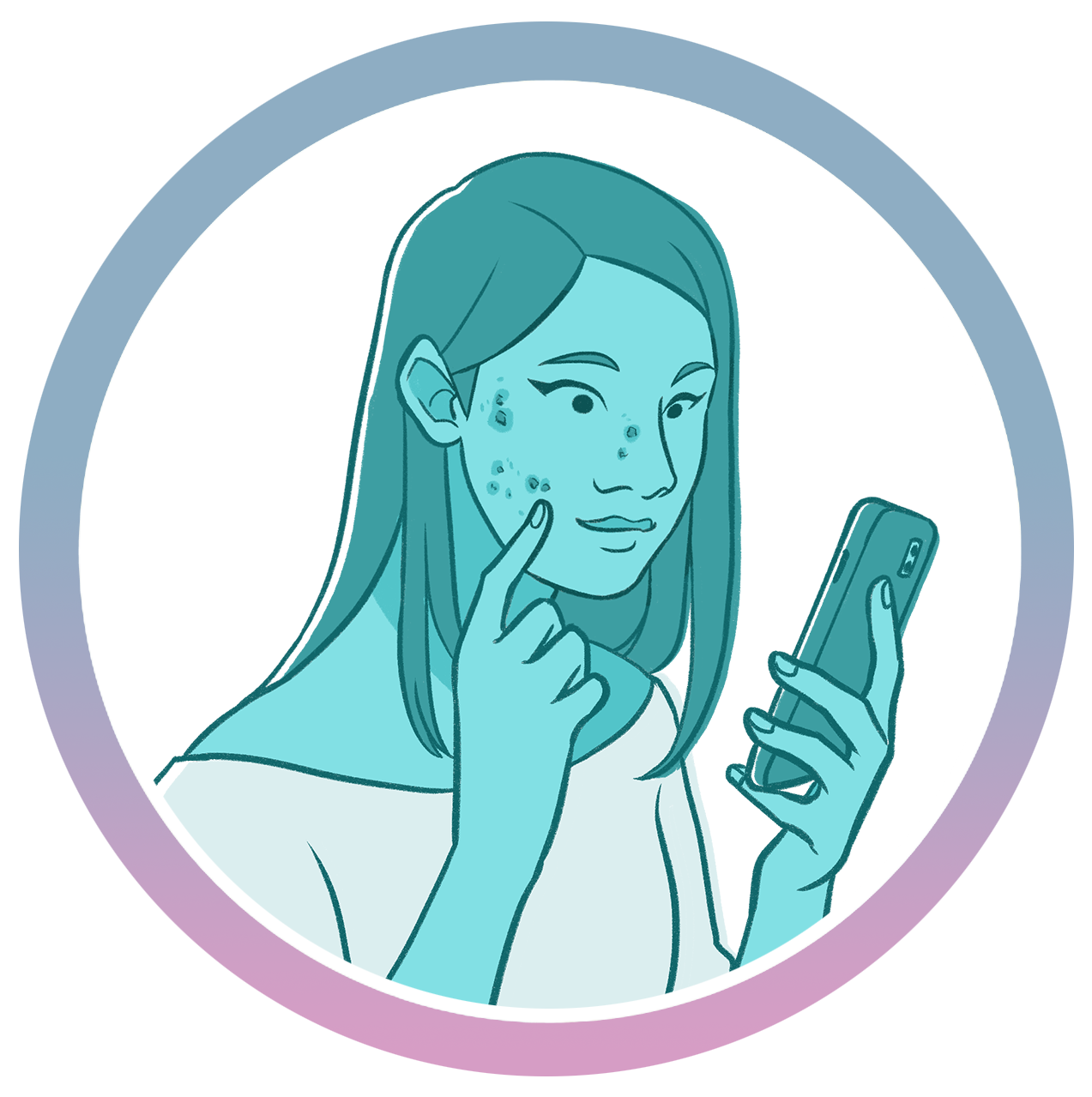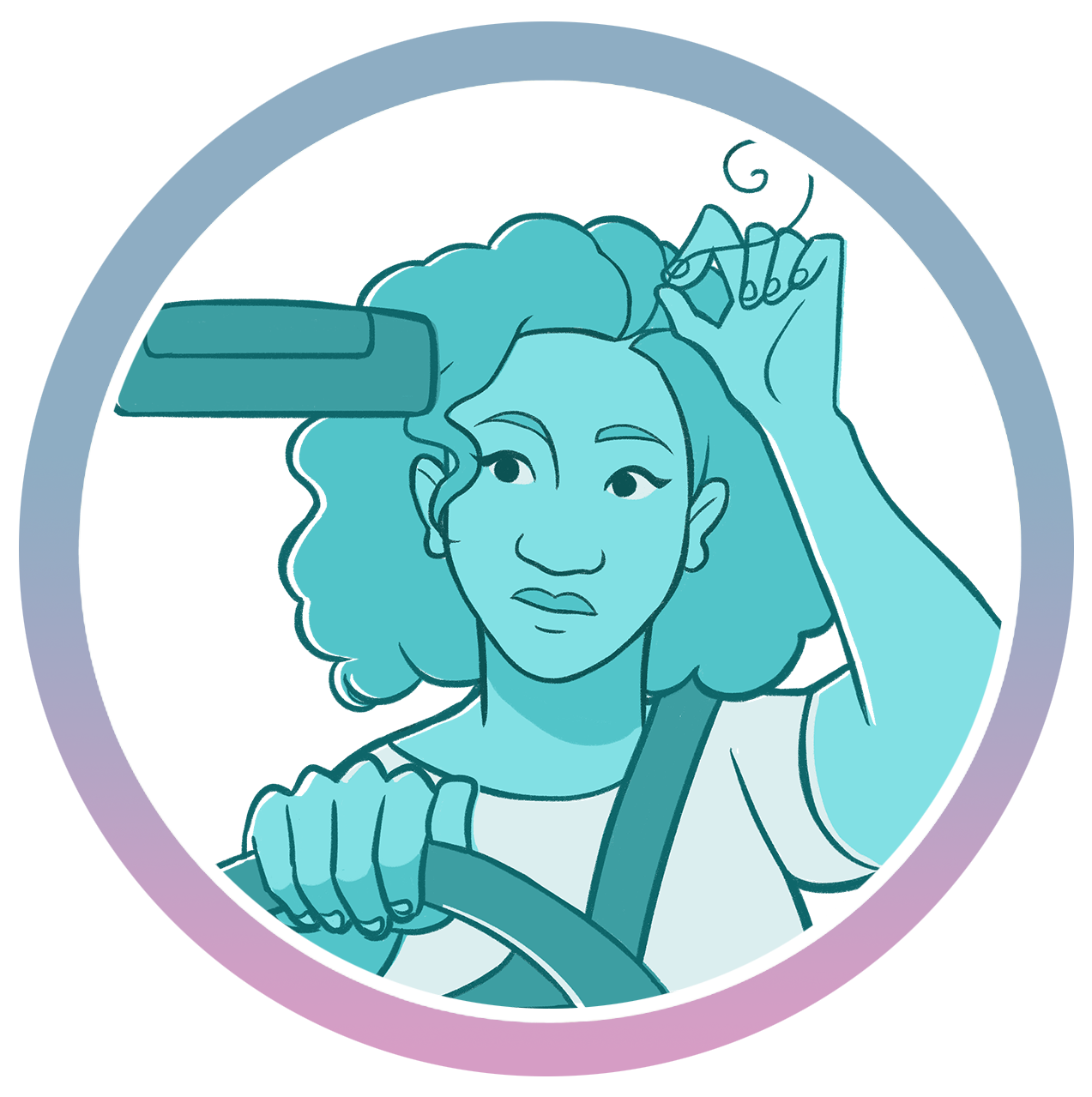Dermatillomania is a body-focused repetitive behavior.
-

Dermatillomania
Compulsive Skin Picking
-

Trichotillomania
Compulsive Hair Pulling
-

Onychophagia
Compulsive Nail Biting
-
Medical Definition
"Excoriation disorder (also referred to as chronic skin-picking or dermatillomania) is a mental illness related to obsessive-compulsive disorder. It is characterized by repeated picking at one’s own skin which results in areas of swollen or broken skin and causes significant disruption in one's life." –Mental Health America
-
Common Skin Picking Regions
- Scalp
- Face/Lips/Neck
- Arms/Legs
- Shoulders/Back
- Chest
- Stomach
- Hands/Feet
- Finges/Toes
Common Dermatillomania Myths
Is Skin Picking a choice?
Dermatillomania and other body-focused repetitive behaviors ARE NOT A CHOICE! They are chronic medical conditions. It is easy for people to blame those with skin picking disorder for not being able to control their hands, but that ignores the fact that Dermatillomania stems from the "fight-or-flight" nervous system, making it a naturally ingrained behavior in the body and thus not a choice. It's the body's default response to trying to get it back to "center." It's not the individuals choice to have these urges, and they cannot usually be controlled through sheer willpower. That's why management is so important.
Is Skin Picking is an addiction?
While skin picking may provide a sense of relief or pleasure for people with Dermatillomania, it is not an addiction in the traditional sense. People with Dermatillomania do not compulsively pick their skin out in order to reach an altered state of consciousness, they do it because their subconscious mind is looking to self-soothe.
Is Skin picking the same as Obsessive-Compulsive Disorder?
While skin picking may be symptomatic of another mental health condition, Dermatillomania is actually considered its own disorder. That's important to know because the treatment for OCD, ADHD, and BFRBs are all different.
Is Dermatillomania rare?
While Dermatillomania may be lesser known than other mental health conditions, it is actually quite common. It is estimated that as many as 1 in 20 people have Dermatillomania, which means that there are potentially millions of people who struggle with it.
Dermatillomania can affect people of all ages, genders, and races.
Can Dermatillomania be cured?
There is currently no cure for Dermatillomania, but there are ways to manage the symptoms and urges. The most effective treatment options include cognitive-behavioral therapy (CBT) and habit reversal training (HRT). There are also awareness smart bracelets, and online support. These resources focus on helping people learn new coping strategies for dealing with stress and other triggers that may cause you to pick your skin.
-
Where do I start with management?
There's no one right way to manage Dermatillomania. But here are some suggestions:
• Speaking to a treatment professional.
• Joining an online support group.
• Growing your awareness with an awareness bracelet.
• Creating a personalized Management Strategy.
-
How do I tell people about my Dermatillomania?
It can be hard to talk about your Dermatillomania, even with a loved one, because of how much stigma there is around the condition.
That being said, support is important when learning to manage.
Here's our guide for preparing to tell a loved one about your Trichotillomania. (It still applies to Dermatillomania!)
-
What is the best replacement strategy for Dermatillomania?
You are unique, and will likely have your own favorites! Experimentation is the best way to figure out what works for you.
-

What is Dermatillomania?
Read the BlogDermatillomania is also known as Excoriation Disorder, Compulsive Skin Picking, and Skin Picking Disorder. Whatever name you give it, Dermatillomania is a chronic mental illness characterized by repeated picking at one’s own skin which results in skin damage and causes significant disruption in one’s life both mentally and physically.
-

Conquering with HabitAware Keen: M's Dermatillomania Awakening
Read the BlogM is a 26-year old, living on the East coast of the US. This is how M is Conquering with Keen Awareness, in her own words.
"For as long as I could remember, I have had a Body Focused Repetitive Behavior (BFRB)..."
-

Love Strength & Awareness Podcast: Lauren McKeaney's Dermatillomania Story
Listen to the PodcastIn this episode, Lauren McKeaney, founder and CEO of Picking Me, joins Aneela to talk about her BFRB, ways to take control of it and what Picking Me is all about. Also included is a quick Mindset Reset. This will allow you to take a minute or two to reflect and take control of your mindset.






